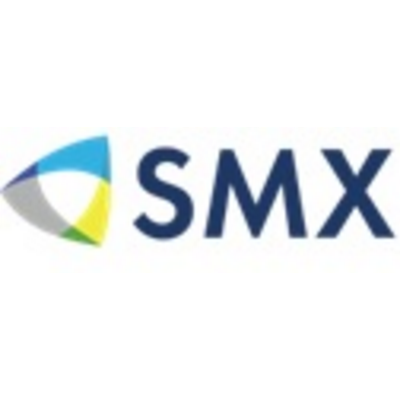NEW YORK, NY / ACCESS Newswire / September 5, 2025 / In today’s markets, proof has become the most valuable currency. Money only moves when trust is secure, brands rise or fall on credibility, and regulators no longer take promises at face value. We’ve entered an economy where evidence is not optional- it’s the entry ticket. And the companies capable of minting this verifiable proof hold the keys to unlocking entirely new markets. This is precisely where SMX (NASDAQ:SMX) has planted its flag.
SMX turns materials into data. Its patented molecular markers are embedded directly into plastics, metals, textiles, and natural rubber, giving every item a scannable, tamper-resistant identity tied to a verified digital passport. That link follows goods from origin through use, recycling, and chemical transformation, proving recycled content, authenticity, and chain of custody in real time. The result is enforceable compliance, anti-counterfeiting, and true material efficiency that converts sustainability from aspiration into measurable value. SMX has created a system where proof itself becomes the product.
History shows what happens when proof becomes standardized. Paper money became trusted currency not because of the paper, but because of the proof systems around it: watermarks, signatures, and central bank guarantees. Today, investors and consumers are demanding the same verifiable authenticity across materials. Companies can’t hide behind broad sustainability pledges. They need a technology layer that proves what is recycled, what is safe, and what is authentic. SMX has built and offers, that layer, making proof as bankable as cash.
Proof Can Be Monetized
The implications go beyond compliance. Proof can be monetized, audited, and traded. This is where SMX’s Plastic Cycle Token (PCT) enters the story. The PCT is a digital-chain-based unit tied directly to verified recycled content. Every time SMX’s molecular markers validate the recovery and reuse of plastics, that data can be represented as a token. Unlike traditional carbon credits, which often lack transparency and are prone to inaccuracies, PCTs are tethered to physical proof. They are minted only when materials are actually recycled and verified. That transforms waste into a financial instrument, turning proof into currency in the most literal sense.
This shift could not come at a more urgent moment. For decades, recycling systems collapsed under frameworks that focused too narrowly on PET bottles and food-grade packaging while ignoring massive streams of industrial resins, automotive polymers, textiles, and electronics. The result was stalled recycling rates, rising incineration costs, and growing skepticism about sustainability claims. The problem wasn’t ambition- it was proof. Now, Singapore has partnered with SMX to launch the world’s first national plastic passport program through its research powerhouse ASTAR, setting a precedent that could reshape how countries measure and monetize materials.





